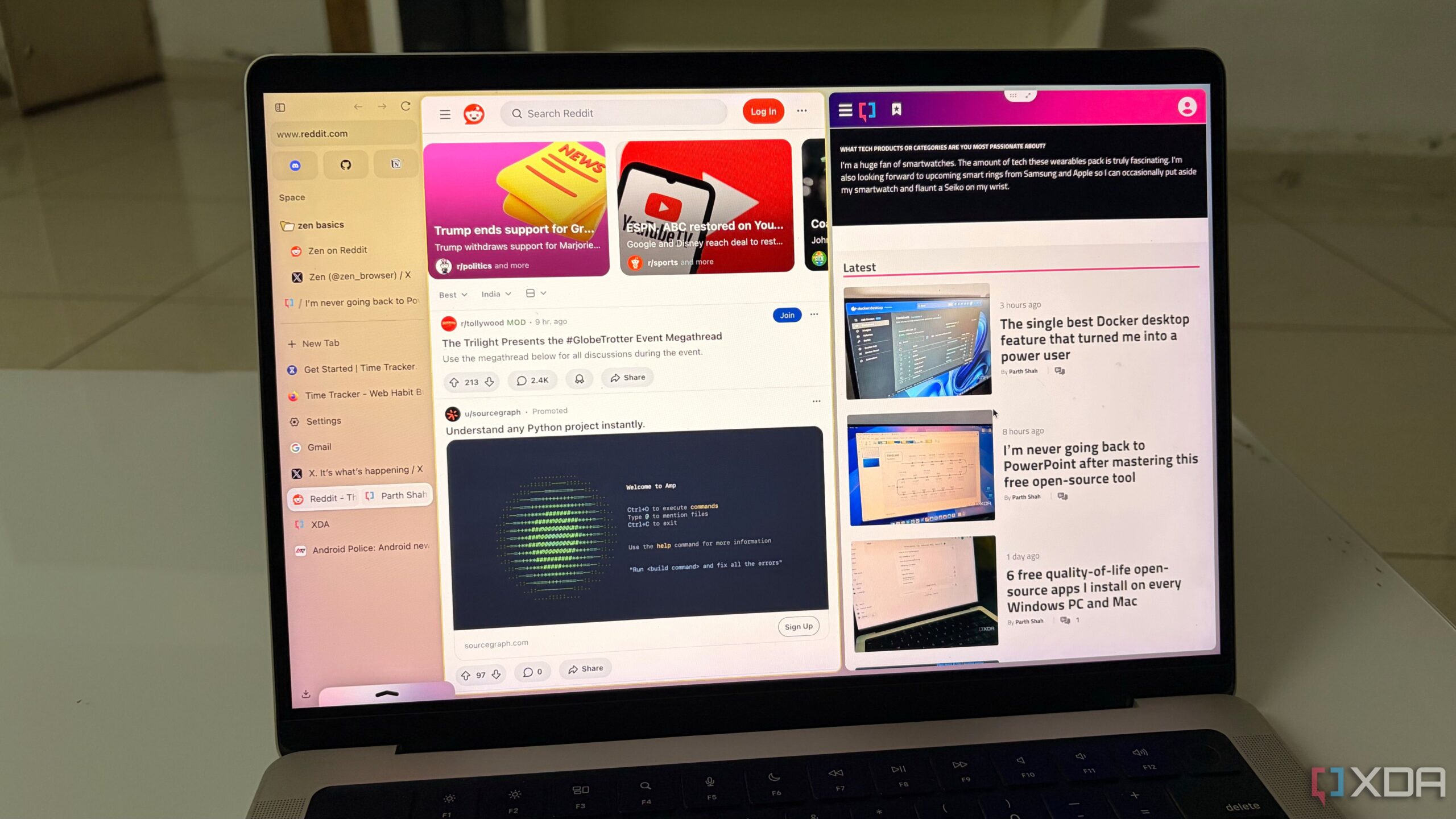Top Stories
Users Abandon Chrome for Zen Browser Amid Privacy Concerns

UPDATE: A significant shift in web browsing is underway as users move away from Google Chrome in favor of the newly popular Zen Browser. Concerns over data privacy and high resource consumption are propelling this change, with Zen emerging as a compelling open-source alternative.
In recent days, users have expressed their frustration with Chrome’s infamous data harvesting practices and resource hogging. The Zen Browser, built on the Mozilla Firefox Gecko engine, has gained attention for its commitment to user privacy and its efficient performance. This transition is not just a trend; it represents a growing demand for transparency and control in online browsing.
Zen Browser boasts a modern interface and productivity features that stand out in today’s crowded market. The vertical tab sidebar, a key design element, maximizes screen space, allowing users to focus on their web content efficiently. As one user commented, “Zen feels like the future of browsing—clean, dynamic, and deeply personal.”
Unlike many competitors, Zen is a fully open-source project, meaning its code is transparent and community-driven. This aspect is crucial, especially as major browsers like Chrome and Edge continue to rely on the Chromium base, which is largely controlled by Google. Zen’s use of the Gecko engine positions it as a unique player in the market, capable of outperforming Chromium-based browsers in speed and memory management.
KEY FEATURES: Zen offers a robust extension library, allowing users to access all Mozilla Add-ons seamlessly. Key extensions like Evernote and Asana are readily available, ensuring a smooth transition for those concerned about losing functionality. Users report that they can maintain their workflow without missing a beat.
Additionally, Zen’s Workspaces feature empowers users to organize their browsing activities. With designated tabs for different tasks, users can streamline their workflow, enhancing productivity significantly. The built-in screenshot tool and customizable keyboard shortcuts further optimize the user experience.
As users continue to abandon Chrome, the demand for alternatives like Zen is expected to surge. The privacy-centric approach and user-friendly features make it a strong contender against established giants in the browser market. With a focus on providing a less distracting browsing environment, Zen positions itself as a tool for both productivity and peace of mind.
As of now, users eagerly await Zen’s expansion into mobile platforms. Current alternatives with Firefox are described as clunky, and many hope for a native experience that mirrors Zen’s desktop capabilities.
WHAT’S NEXT: The browser landscape is evolving rapidly, and the response from users indicates a potential shift in preferences. As more individuals prioritize data privacy and functionality, Zen Browser could become the new standard.
Stay tuned for further updates on this developing story as the impact of user choices reshapes the future of web browsing.
-

 Science2 weeks ago
Science2 weeks agoUniversity of Hawaiʻi Joins $25.6M AI Project to Monitor Disasters
-

 Business3 weeks ago
Business3 weeks agoForeign Inflows into Japan Stocks Surge to ¥1.34 Trillion
-

 Top Stories3 weeks ago
Top Stories3 weeks agoMarc Buoniconti’s Legacy: 40 Years Later, Lives Transformed
-

 Top Stories3 weeks ago
Top Stories3 weeks agoBOYNEXTDOOR’s Jaehyun Faces Backlash Amid BTS-TWICE Controversy
-

 Health3 weeks ago
Health3 weeks agoInnovative Surgery Restores Confidence for Breast Cancer Patients
-

 Sports1 month ago
Sports1 month agoSteve Kerr Supports Jonathan Kuminga After Ejection in Preseason Game
-

 Science1 month ago
Science1 month agoChicago’s Viral ‘Rat Hole’ Likely Created by Squirrel, Study Reveals
-

 Top Stories3 weeks ago
Top Stories3 weeks agoCarson Wentz Out for Season After Shoulder Surgery: Urgent Update
-

 Lifestyle1 month ago
Lifestyle1 month agoKelsea Ballerini Launches ‘Burn the Baggage’ Candle with Ranger Station
-

 Entertainment1 month ago
Entertainment1 month agoZoe Saldana Advocates for James Cameron’s Avatar Documentary
-

 Politics1 month ago
Politics1 month agoDallin H. Oaks Assumes Leadership of Latter-day Saints Church
-

 Lifestyle1 month ago
Lifestyle1 month agoDua Lipa Celebrates Passing GCSE Spanish During World Tour









